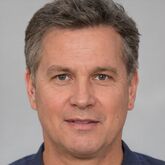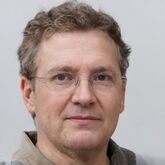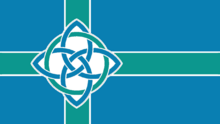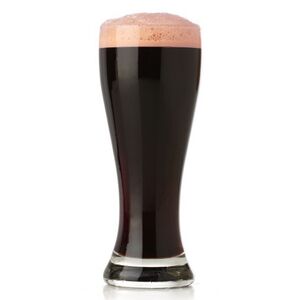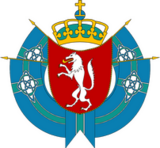Kingdom of Blechingia: Difference between revisions
No edit summary |
|||
| Line 147: | Line 147: | ||
==Geography & Climate == | ==Geography & Climate == | ||
===Geography=== | ===Geography=== | ||
Blechingia has a generous coastline that has been an important facet of the development of the country. Fishing and commerce have flourished among the cities by the coast, | |||
Blechingia has a generous coastline that has been an important facet of the development of the country. Fishing and commerce have flourished among the cities by the coast, Major cities have been built around these areas like; Malmö, Göteborg, | |||
Járnger ðr Mountains. | |||
The tallest mountain is Mt. Aidan at 10,662 ft (3250 m), located 96 miles South of the city of Fort McKenna. It has only been summited five times because of its remotes from the rest of the country and that the city of Ft. McKenna only has a population 16,890 people and has no major road connecting it to the more cultivated cities. | The tallest mountain is Mt. Aidan at 10,662 ft (3250 m), located 96 miles South of the city of Fort McKenna. It has only been summited five times because of its remotes from the rest of the country and that the city of Ft. McKenna only has a population 16,890 people and has no major road connecting it to the more cultivated cities. | ||
Revision as of 05:01, 19 February 2021
This article is incomplete because it is pending further input from participants, or it is a work-in-progress by one author. Please comment on this article's talk page to share your input, comments and questions. Note: To contribute to this article, you may need to seek help from the author(s) of this page. |
Kingdom of Blechingia Konungsríki Gothia (Götaish) | |
|---|---|
| Motto: "Sanngirni Guðs sem við trúum" Fairness of God We Believe | |
| Anthem: | |
| Capital | Malmö |
| Largest city | Göteborg |
| Official languages | English, German, Götaish |
| Demonym(s) | Blechingian (Internationally) Goutian (Nationally) |
| Government | Federal Constitutional-Parliamentary Monarchy |
• Monarch | Emily II |
• Prime Minister | Alexander O'Donnell |
• Deputy Prime Minister | Karl Andersson |
• Speaker of the Riksdag | William Ericsson |
• Chief Justice | Aleksander Skarsgård |
| Legislature | Riksdag |
| House of Jarls | |
| House of Commoners | |
| Establishment | |
• ESTABLISHED | 650 AD |
• Formation of West Gothia | 650 AD |
• Formation of East Gothia | 860 AD |
• A unified Blechingian kingdom established | 970 AD |
• Christianization | 980 to 1150 AD |
• War of the Linnaea borealis | 1280 to 1367 AD |
• Gothic Civil War | 1476 to 1483 |
| Area | |
• Total | 1,022,058 km2 (394,619 sq mi) |
| Population | |
• 2019 estimate | 33,489,984 |
• 2010 census | 31,987,328 |
• Density | 31.2/km2 (80.8/sq mi) |
| GDP (nominal) | 2019 estimate |
• Total | 1.33 Trillion ACD |
• Per capita | 41,023 ACD |
| HDI (2019) | 0.923 very high |
| Currency | Goutai Dollar (þ) (GID) |
| Time zone | UTC-3 to -4 (-2 3/4)&(-4 1/2) (-2 to -3 (-1 3/4)&(-2 1/2)) |
| Date format | DD-MM-YYYY |
| Driving side | right |
| Calling code | +46 |
| Internet TLD | .bh |
The Kingdom of Blechingia, commonly known as Blechingia (pronounced phonetically as Blech-ing-ia), is a country located in southern Thrismari, Blechingia is bordered by Sereder to the west, South Eisennau to the notrhwest, Medovia to the northeast, Lyonheimer to the east, and to the south, the Bay of Asta, Strait of Lir, and Ice Sea. At 394,619 square miles (1,022,058 square kilometers) and a population of around 33.5 million people. The country's capital is Malmö.
Etymology
The name Blechingia is the latin spelling of Blekinge which means, The name "Blekinge" comes from the dialectal adjective bleke, which corresponds to the nautical term for "dead calm".
History
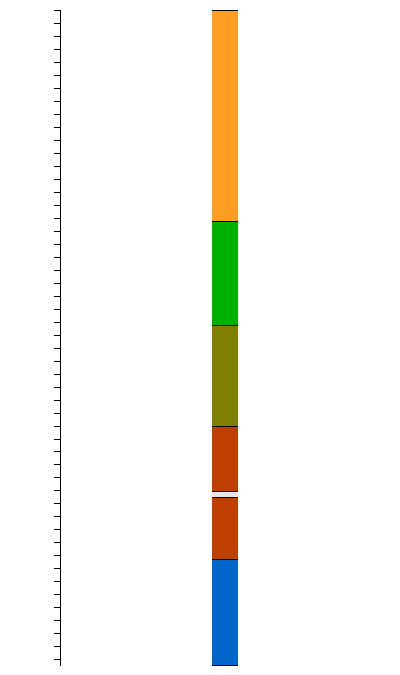
PreHistory
Early Pre-Christian Goutai and Étaín
Between 100 AD and 1070 AD is the period of time to where civilization in modern day Blechingia start to take shape. The earliest known large kingdom or often classified as a chiefton was the Gouítaí or in modern Götaish as Goutia. To of which was located around the modern city of Göteborg.
Kingdom's of Gouthai & Blekinge
Republic of Blechingia
The Republic was a short period in time to where the monarchy and nobility where forbidden to hold almost any type of gov't position. The period is often called the "Dark Republic Era" as the leaders of the republic cared very little for the lower classes and often forced them to build building that where way to expense like the Building of the Republic often said to become the new office for the nation but was later found to just be another way of forcing the lower classes to pay more in taxes. The era start with the assassination of then Queen Christina I also called The Virgin Queen. In 1482 she was only 21 at the time of her death and had only been Queen for 2.4 years.
Kingdom of Blekinge Returns
Kingdom of Blechingia
Geography & Climate
Geography
Blechingia has a generous coastline that has been an important facet of the development of the country. Fishing and commerce have flourished among the cities by the coast, Major cities have been built around these areas like; Malmö, Göteborg,
Járnger ðr Mountains.
The tallest mountain is Mt. Aidan at 10,662 ft (3250 m), located 96 miles South of the city of Fort McKenna. It has only been summited five times because of its remotes from the rest of the country and that the city of Ft. McKenna only has a population 16,890 people and has no major road connecting it to the more cultivated cities.
Climate
The climate in Blechingia is defend as Taiga mostly along the coast and about 34 to 42 miles inland before either turning in to Temperate or Alpine if the mountain ranges meant the coast. The far eastern position of the country is classified as temperate grasslands as the region gets around 340 mm of precipitation a year. Will the northern most populated town being Fort McKenna gets an average of 510 mm of precipitation a year as the mountain range blocks most of the rain from falling on the western side.
| Climate data for Ft. McKenna (1909–2018 averages) | |||||||||||||
|---|---|---|---|---|---|---|---|---|---|---|---|---|---|
| Month | Jan | Feb | Mar | Apr | May | Jun | Jul | Aug | Sep | Oct | Nov | Dec | Year |
| Record high °C (°F) | 32 (90) |
35 (95) |
33.1 (91.6) |
30.6 (87.1) |
27.9 (82.2) |
26 (79) |
22 (72) |
20 (68) |
23 (73) |
26 (79) |
27 (81) |
30 (86) |
35 (95) |
| Average high °C (°F) | 22.4 (72.3) |
24 (75) |
22.3 (72.1) |
15.3 (59.5) |
8.9 (48.0) |
−4 (25) |
−8.4 (16.9) |
−10.7 (12.7) |
−3.6 (25.5) |
5 (41) |
13 (55) |
21.1 (70.0) |
8.8 (47.8) |
| Average low °C (°F) | 3.8 (38.8) |
4.2 (39.6) |
3.4 (38.1) |
1.2 (34.2) |
−2 (28) |
−8.1 (17.4) |
−12.4 (9.7) |
−14.3 (6.3) |
−7.9 (17.8) |
−3.1 (26.4) |
2 (36) |
3.2 (37.8) |
−2.5 (27.5) |
| Record low °C (°F) | −44 (−47) |
−46 (−51) |
−38.9 (−38.0) |
−32 (−26) |
−22.2 (−8.0) |
−14.9 (5.2) |
−12.1 (10.2) |
−18.8 (−1.8) |
−22.7 (−8.9) |
−28 (−18) |
−33 (−27) |
−36.8 (−34.2) |
−29.1 (−20.4) |
| Average precipitation mm (inches) | 12 (0.5) |
23 (0.9) |
34 (1.3) |
40 (1.6) |
44 (1.7) |
66 (2.6) |
76 (3.0) |
70 (2.8) |
56 (2.2) |
45 (1.8) |
34 (1.3) |
10 (0.4) |
510 (20.1) |
| Average precipitation days (≥ 1.0 mm) | 2 | 4 | 9 | 13 | 16 | 20 | 23 | 21 | 17 | 14 | 8 | 1 | 148 |
| Mean monthly sunshine hours | 214 | 203 | 186 | 166 | 154 | 134 | 120 | 115 | 132 | 154 | 169 | 189 | 1,936 |
| Source: Climate/Ft.McKenna.Blech's weather.bl | |||||||||||||
Environment
Animals
The national mammal is the Grey Wolf
Demographics
Population
The Blechingian Census Bureau officially estimated the country's population to be 33,489,984 as of 21 January, 2019.
Ethnicity
Language
Cities
The largest city in Blechingia is Göteburg with its large population growth coming in the Modern Era followed by Malmö, the capital and largest city for hundreds of years. Telex and Saluntberg are the largest cities by far with 3.3 & 2.21 million in their Metropolitan areas respectively. After that are the cities of Thurlow ( metro), Elisabethtown ( metro) & Drogheda ( in metro.)
| Rank | Division | Pop. | |||||||
|---|---|---|---|---|---|---|---|---|---|
| 1 | Göteborg | [[]] | 3,328,098 | ||||||
| 2 | Malmö | [[]] | 2,210,890 | ||||||
| 3 | Thurlow | [[]] | |||||||
| 4 | Elisabethtown | [[]] | |||||||
| 5 | Drogheda | [[]] | |||||||
| 6 | Shannon | [[]] | |||||||
| 7 | Springdale | [[]] | |||||||
| 8 | Shady Lake | [[]] | |||||||
| 9 | [[]] | [[]] | |||||||
| 10 | [[]] | [[]] | |||||||
Politics
Government
Cabinet Members
The reason why some say "No Party" is because they are forbidden from joining any political party since they are apart of the royal family.
Cabinet
Goutai Cabient has 17 member seats and 1 for Prime Minister,
| Color | Name of the Political Party | Nick used by the Political Party | Political direction | Number of seats | Opposition/coalition/unaffiliated |
|---|---|---|---|---|---|
| Conservative Democratic Party (KDP) | Conservative's | centre-right | 9 | Coalition | |
| Christian Democratic Party (CDP) | Christians | right-wing | 5 | Coalition | |
| Independents (I) | Independents | centre | 2 | Unaffiliated | |
| Social Democratic Party (SDP) | Social Dems | left-wing | 1 | Opposition |
Monarchy
Law
Federal states and Administrative divisions
As a Federal Constitutional-Parliamentary Monarchy, Blechingia consists of 21 states, as well as a total of TBA second-level administrative divisions. TBA
| State | Capital | State-Code | Population (2019) | Area in km^2 | Population Density | GDP per capita | GDP |
|---|---|---|---|---|---|---|---|
| Étaín | Killarney | ÉN | 43,873 | 15,174 | 2.89 | ||
| Östergötland | Linköping | ÖG | 2,097,985 | TBA | TBA | ||
| Skåne | Malmö | MÖ | TBA | TBA | TBA | ||
| Västergätland | Göteborg | VG | 6,117,185 | TBA | TBA |
Foregin Affairs
| Country/Union/Autonomous District | Status | State of relations | Mutual Embassies | Formal Relations Began | Blechingia Ambassador | Foreign Ambassador |
|---|---|---|---|---|---|---|
| Good | TBA, Fallooplesburg - TBA, Blechingia | 28 November 1861 | Aoife Þóreyjarsdóttir | Luca von Steiger | ||
| Neutral | Country in Midwestern Thrismari | Yoanrul, Qazhshava - Göteborg, Blechingia | 12 January 1946 | Anna Jacobsen | Avor P'tsineshvi | |
| Very Positive | We are old trade partners and we have a free trade agreement. | Zozava, Krenya - Göteborg, Blechingia | 19 October 1965 | Magnus Guðmundursson | Zaparin Kren | |
| TBA | Kandan, Zhousheng - Göteborg, Blechingia | TBA | Aisling Egilsdóttir | Miloш Зaramin | ||
| TBA | TBA, Foxomexra - TBA, Blechingia | TBA | TBA | TBA |
Infrastructure
Energy
Energy production in Blechingia (2019)
Symbols
National Flag
The National Flag of Blechingia is consists of three primary colors and has a ratio of 3:5 (1.667). The official explanation is that the blue represents the oceans, lakes, and rivers. Which are all very important to viking way of life. The green represents the land. For which the people and animals share. The gray represents the cold dark winter nights when the families tell story's of the past. The nordic cross represents the official religion of Blechingia. The Gaelic knot represents the friendship between the Gaelic (Irish) people and the germanic peoples and their ancestors.
The flags name is Gefjon – Also known as Gefjun, Gefyon, Gebj, her name means “giver,” it is also the name of one of the Runes associated with good luck. She was the protector of unmarried women.
| Scheme | White | Blue | Green |
|---|---|---|---|
| RGB | 0-0-0 | 9-127-178 | 12-151-142 |
| RGB hex triplet | FFFDFD | 097FB2 | 0C978E |
National Animals
The National Animal of Blechingia is the Eurasian Wolf. It has been believed to have been an important part of Goutai Culture ever since at least the last 2nd century BC. As it's talked about in Goutia and sometimes ever Gaelic stories.
Culture
Cuisine
National drink is the "Bronaugh", is a dark Gaelic dry stout with a relatively high alcohol percentage of 6.5%. It is often drunk on important parties and festivals, but also traditionally on the 18th. birthday of a boy, celebrating his adulthood. The drink was created by Robert Bronaugh in 1678 in his brewery. It stayed a local beer until 1837 when the Queen Emily I was told to try it out as she was visiting the town of Ballyneety just north of Shannon, And fell in love with the taste of the beer. Having brought 10 barrels back with her to Göteborg the town quickly wanted more and ever since has been loved by the Blechingian people.





